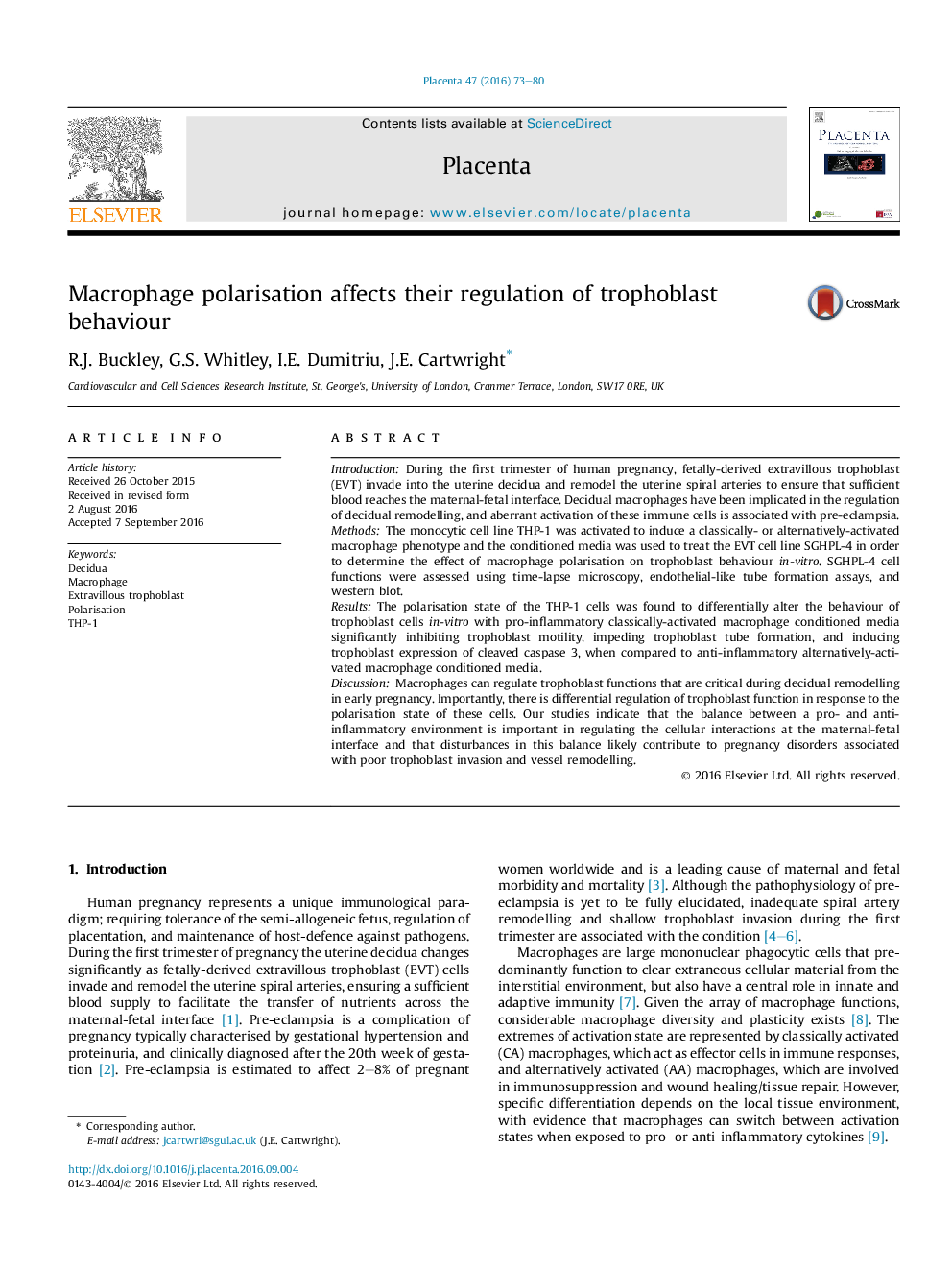| Article ID | Journal | Published Year | Pages | File Type |
|---|---|---|---|---|
| 5894105 | Placenta | 2016 | 8 Pages |
â¢Extravillous trophoblast motility is inhibited by classically activated macrophages.â¢Alternatively activated macrophages support trophoblast network-formation.â¢Macrophage polarisation can affect important trophoblast functions.â¢Alterations in macrophage phenotype may impair trophoblast decidual remodelling.
IntroductionDuring the first trimester of human pregnancy, fetally-derived extravillous trophoblast (EVT) invade into the uterine decidua and remodel the uterine spiral arteries to ensure that sufficient blood reaches the maternal-fetal interface. Decidual macrophages have been implicated in the regulation of decidual remodelling, and aberrant activation of these immune cells is associated with pre-eclampsia.MethodsThe monocytic cell line THP-1 was activated to induce a classically- or alternatively-activated macrophage phenotype and the conditioned media was used to treat the EVT cell line SGHPL-4 in order to determine the effect of macrophage polarisation on trophoblast behaviour in-vitro. SGHPL-4Â cell functions were assessed using time-lapse microscopy, endothelial-like tube formation assays, and western blot.ResultsThe polarisation state of the THP-1Â cells was found to differentially alter the behaviour of trophoblast cells in-vitro with pro-inflammatory classically-activated macrophage conditioned media significantly inhibiting trophoblast motility, impeding trophoblast tube formation, and inducing trophoblast expression of cleaved caspase 3, when compared to anti-inflammatory alternatively-activated macrophage conditioned media.DiscussionMacrophages can regulate trophoblast functions that are critical during decidual remodelling in early pregnancy. Importantly, there is differential regulation of trophoblast function in response to the polarisation state of these cells. Our studies indicate that the balance between a pro- and anti-inflammatory environment is important in regulating the cellular interactions at the maternal-fetal interface and that disturbances in this balance likely contribute to pregnancy disorders associated with poor trophoblast invasion and vessel remodelling.
